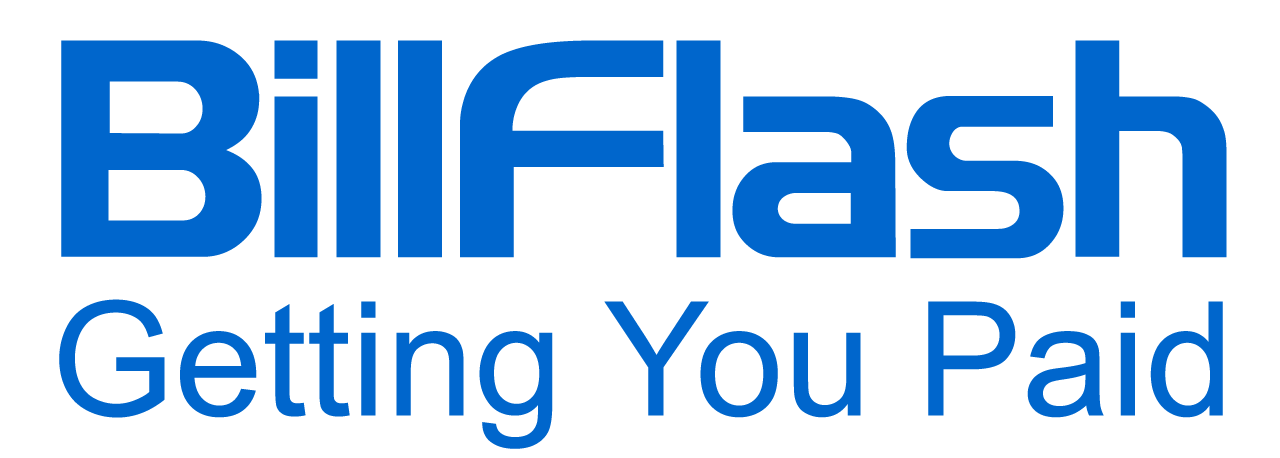Small medical practices often face challenges regarding medical billing processes. Find out how medical billing services can help you!
Medical practices face increasing pressure to provide high-quality care while also managing costs and administrative tasks. Small medical practices often face distinct challenges compared to larger medical practices, especially when it comes to medical billing processes. These challenges often lead to revenue leakage and administrative pressures. This often leads to low-quality medical care.
The good news? No small practice has to go at it alone. Medical billing services for small practices have proven to be a workable solution to these challenges by providing specialized expertise and technology to streamline billing processes and improve revenue cycle management. By outsourcing medical billing, small practices can focus on patients and improve their overall financial performance.
Understanding Medical Billing Services
Medical billing is a complex but critical process that ensures healthcare providers receive proper reimbursement for the services they deliver. At its core, medical billing is all about protecting the lifeblood of a practice—its revenue stream. Inaccurate coding, missed filing deadlines, and lack of follow-up on denials can quickly lead to cash flow issues and hurt the bottom line.
This is where billing services bring tremendous value to the table. Their very mission is to be sure that small practices receive every dollar they've earned for services given to patients. When you partner with a medical billing service provider, you are effectively extending your in-house staff by gaining an entire team dedicated to medical billing and revenue cycle operations.
Some of the typical functions and responsibilities handled by these billing experts include the following:
- Providing analytics and reporting on revenue cycle performance metrics
- Scrubbing claims for errors pre-submission to prevent denials
- Submitting clean claims electronically and directly to insurance payers
- Posting payments received from payers to patient accounts
- Sending patient statements and handling collections on outstanding balances
- Monitoring and appeals management for any denied or underpaid claims
The reality is that most small practices don't have the resources or specialized staffing to put together a world-class in-house billing operation. Between keeping up with changes in coding and billing rules, investing in medical billing technology, and managing the personnel demands of an in-house team, the overhead costs can be excessive.
Not to mention the costs of having clinical staff pulled away repeatedly to deal with billing issues. By outsourcing to a proven medical billing service provider, even solo and small practices can benefit from enterprise-grade revenue cycle capabilities at a fraction of the cost of building those capabilities themselves.
Benefits of Medical Billing Services for Small Practices
For small medical practices, managing billing and revenue cycle functions in-house with limited staff and resources can be extremely challenging. The daily requirements around medical billing, combined with the need to optimize revenue and ensure quick payments, place tremendous pressure on these small practices.
Outsourcing medical billing to a dedicated third-party service provider can free billing staff from these pressures. Specialized medical billing services have the expertise, technology, systems, and scale to handle end-to-end billing, coding, and claims management for practices. This delivers benefits that can empower small medical practices, putting them in a prime position to focus on delivering quality care while maintaining financial viability and growth.

Improved Revenue Cycle Management
By partnering with a medical billing service, practices can significantly enhance their revenue cycle management capabilities. These companies live and breathe medical billing, so optimizing your revenue cycle is what they know how to do. From coding compliance to denial management to accounts receivable follow-up, medical billing companies apply industry best practices to drive more complete and timely reimbursement.
A key focus is reducing revenue leakage—minimizing the amount of earned revenue that slips through the cracks due to coding errors, missed filing deadlines, lack of follow-up on denials, etc. The best medical billing services have powerful processes and technologies to scrub claims before submission and work on denials until payment is received. This protects practices from leaving money on the table while optimizing revenue capture.
Reduced Administrative Burden
One of the biggest benefits of medical billing services for small practices operating with limited staff and resources is offloading administrative burdens. All of the important billing tasks like coding, claims submission, payment posting, denial appeals, and collections get delegated to an external team of billing experts.
This allows practices to reallocate precious staff time and energy away from billing struggles and toward higher priorities like caring for patients and key revenue-generating activities. By removing billing from their staff's workload, healthcare providers and leaders can ensure the teams stay focused on their responsibilities.
Increased Efficiency and Time Savings
Medical billing processes and workflows become streamlined when handled by partners who know how to use technology, automation, and economies of scale to their advantage. For example, capabilities like clearinghouse claim scrubbing, electronic claim submission directly to payers, and automated denial management create efficiencies that reduce manual work.
The billing service model creates an exception-based workflow. Human intervention is only required when there are issues that can't be automatically resolved. This allows the billing service's staff to operate in a more efficient, prioritized manner. All of these factors drive significant time savings compared to traditional manual billing processes.

Access to Specialized Expertise and Technology
Small medical practices often lack the resources to handle medical billing in-house efficiently. By using a medical billing service, they get access to certified billers, auditors, and compliance experts with up-to-date knowledge of billing rules and regulations. Billing services have made major investments in advanced billing technologies and software platforms.
Small practices can leverage these purpose-built solutions, from claims scrubbing and editing tools to analytics dashboards, to enhance their billing performance in ways they may have never been able to. The specialized expertise and technology medical billing services use can empower small practices to optimize their billing while holding on to their visibility and control through planning, training, and consistent communication.
Considerations for Selecting a Medical Billing Service Provider
While the benefits of using a medical billing service are clear, not all billing services are created equal. There can be major differences in service quality, technical capabilities, pricing models, and overall value. Like with any major partner decision, practices need to thoroughly evaluate potential partners against some key criteria:
- Pricing structure and transparency around fees
- Reputation, client references, and performance guarantees
- Size and experience level of their billing staff
- Strength of billing technology platform and integrations
- Depth of specialization in your specialty/sub-specialty
- Client implementation, training, and ongoing support model
- Accessibility of their operations
Small practices will want to ensure needs like HIPAA compliance are checked boxes on the list. Also look for abilities like advanced billing analytics, automated workflows, and value-based care support. With so many medical billing services vying to partner with small practices, separating reputable partners from less credible ones is a must.
Some tips for determining credibility and reputation include:
- Confirm organizational credentials and certifications from groups like AAPC, AHIMA, HBMA, etc.
- Look for leadership and staff with medical billing experience
- Measure their technology usage and ability to support your practice's growth
- Ask for detailed client references, especially from small practices similar to yours
- Review current client testimonials as well as third-party review platforms
Don't let a potential partner off the hook with unclear answers—any worthwhile medical billing service should be able to give you clear details about their people, processes, accreditations, case studies, and overall vision. Making the right choice requires looking beyond how they market themselves to understand their capabilities and cultural fit with your small practice. Due diligence takes time, but putting in the work pays off by setting you up with a trusted medical billing service for the long haul.
Integration Tips for Seamless Operations
Even after finding the right medical billing partner, the implementation process is critical for ensuring seamless integration into your current workflows and systems. A few practical tips include:
- Put in time upfront to map out processes, roles, and responsibilities with the billing team
- Establish a rhythm and format for regular operational meetings to discuss performance, issues, and ongoing improvements
- Make sure you understand technical requirements like EHR system integrations
- Thoroughly document all policies, payer rules, and billing guidelines for your practice during training
- Implement safeguards and audits to verify billing accuracy during the first few months
- Have someone serve as the point person and main line of communication with the billing team
Even with a competent billing service as your partner, you can't just have it and forget about it. Maintaining open lines of communication and treating them as an extension of your billing team is important.
- Schedule review meetings to talk about performance metrics, concerns, and opportunities
- Be open and honest about issues on your end that could impact how they conduct their work
- Collaborate on ideas to improve billing performance through adjustments, new technology, etc.
- Establish a process for them to escalate payer issues and pushback they can't resolve on their own
- Meet at least once a year to review performance against your practice's strategic goals and growth plans
The more you see the relationship as a true partnership, the more seamless and productive it will be. When everyone works toward the same objectives with transparency, it becomes a win-win.

Future Trends and Innovations
As medical billing continues growing in complexity, innovative service providers are utilizing new technologies and approaches. This includes AI and Machine Learning (ML) to lessen human work. Advanced analytics are being used for more than just reporting; it is also being used to gather actionable billing insights.
There is also a movement toward centralized billing operations with EHR vendors to create end-to-end RCM solutions. Natural language processing (NLP) also shows promise for automatically combining clinical documentation for coding. To be sure a medical billing service can continue to deliver long-term value, small practices should prioritize those that are investing in cutting-edge resources.
Value-based care data integration and reimbursement modeling will also become increasingly important. Strong compliance programs adapting to new regulations are a must. And as patient responsibility rises, patient billing and payment functionality will be crucial. Medical billing services that capitalize on these approaches will be in the best position to help small practices optimize their billing processes and financial performance over time.
Final Thoughts
The administrative headaches of medical billing are often a major source of stress and lost revenue opportunities. By partnering with an experienced medical billing service, your small practice can ease this burden while:
- Having access to enterprise-grade billing expertise and technology
- Optimizing revenue cycle management and protecting your revenue stream
- Letting go of a heavy workload to refocus staff on caring for patients depending on your small practice
- Streamlining medical billing workflows and driving operational efficiencies
If your in-house billing operation feels like a never-ending source of confusion and mistakes, it may be time to hand the baton over to the experts. With the right medical billing partner handling the challenges, you can reclaim bandwidth for your priorities—delivering the best healthcare services and running a top-tier small practice in your community. Schedule a demo today to learn how BillFlash RCM Services can optimize your revenue cycle and streamline your operations.

